Pet Supplies

Pet Grief: Behavioural Signs and Training Suppo...
Grief is not an emotion exclusive to humans. When a beloved companion—human or animal—passes away, the surviving pet often experiences a profound emotional void. This grief may not be expressed...
Pet Grief: Behavioural Signs and Training Suppo...
Grief is not an emotion exclusive to humans. When a beloved companion—human or animal—passes away, the surviving pet often experiences a profound emotional void. This grief may not be expressed in tears or words, but in silence, withdrawal, or restlessness. Many pet owners in Australia have witnessed this subtle but unmistakable pain, whether it’s a dog waiting by the door for a companion who will never return or a cat that refuses to eat after losing its bonded mate.
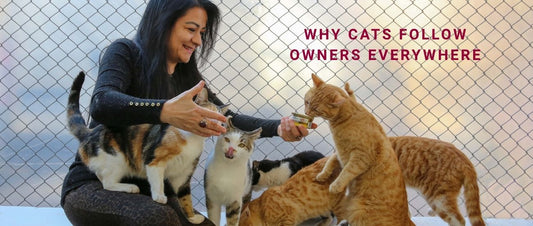
Why Cats Follow Owners Everywhere: Behavioural ...
If you own a cat in Australia, chances are you’ve experienced the mysterious shadow effect — that moment when your feline companion seems to appear wherever you go. Whether you’re...
Why Cats Follow Owners Everywhere: Behavioural ...
If you own a cat in Australia, chances are you’ve experienced the mysterious shadow effect — that moment when your feline companion seems to appear wherever you go. Whether you’re cooking in the kitchen, working at your desk, or even in the bathroom, your cat’s presence feels constant, almost like they’ve appointed themselves as your personal assistant.

Redirected Aggression in Cats: Behavioural Caus...
Redirected aggression is one of the most perplexing and distressing behaviours cat owners can experience. It often appears without warning, leaving many owners both confused and fearful. Imagine a peaceful...
Redirected Aggression in Cats: Behavioural Caus...
Redirected aggression is one of the most perplexing and distressing behaviours cat owners can experience. It often appears without warning, leaving many owners both confused and fearful. Imagine a peaceful afternoon in your living room—your cat gazes out the window, spots another feline strolling past, and within seconds, turns and attacks you or another household pet. The aggression seems irrational, but beneath the surface lies a very understandable feline instinct.

Behavioural Red Flags in Pets: Training Adjustm...
Pets bring joy, companionship, and comfort to households across Australia. Yet, alongside the wagging tails and gentle purrs, there are times when our furry companions display troubling behaviours that leave...
Behavioural Red Flags in Pets: Training Adjustm...
Pets bring joy, companionship, and comfort to households across Australia. Yet, alongside the wagging tails and gentle purrs, there are times when our furry companions display troubling behaviours that leave us concerned, frustrated, or even fearful.

Food Stealing Pets: Behavioural Causes and Trai...
In many Australian households, preparing a meal or leaving the kitchen unattended can turn into a test of vigilance. You step away for a moment, and suddenly your Labrador has...
Food Stealing Pets: Behavioural Causes and Trai...
In many Australian households, preparing a meal or leaving the kitchen unattended can turn into a test of vigilance. You step away for a moment, and suddenly your Labrador has leapt onto the counter to snatch the roast chicken, or your curious cat has found its way to the butter dish. This common behaviour, often called “counter surfing”, is more than just cheeky—it can be dangerous and frustrating for both pets and owners.
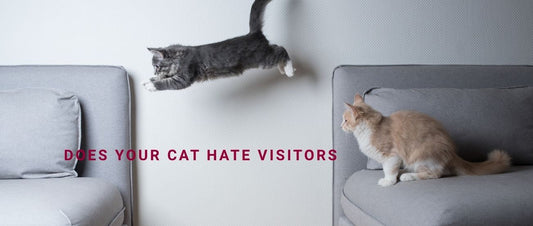
Does Your Cat Hate Visitors? Behavioural Anxiet...
If you have ever invited friends or family over only to find your cat hissing, growling, or disappearing under the bed, you are not alone. Many Australian pet owners find...
Does Your Cat Hate Visitors? Behavioural Anxiet...
If you have ever invited friends or family over only to find your cat hissing, growling, or disappearing under the bed, you are not alone. Many Australian pet owners find themselves wondering: “Does my cat actually hate visitors?” The truth is usually more complex. Cats are naturally cautious animals, and their reactions to strangers are deeply influenced by biology, past experiences, and their environment.

Senior Pets and Behavioural Changes: Training A...
Watching a beloved pet grow old is a bittersweet experience. Over the years, they’ve been our companions, protectors, entertainers, and sometimes even our confidants. As pets enter their golden years,...
Senior Pets and Behavioural Changes: Training A...
Watching a beloved pet grow old is a bittersweet experience. Over the years, they’ve been our companions, protectors, entertainers, and sometimes even our confidants. As pets enter their golden years, however, it’s common to notice behavioural changes alongside physical aging. Your once energetic dog may now prefer shorter walks, or your previously playful cat may spend more time sleeping in a quiet corner.

Chewing, Scratching & Digging in Pets: Behaviou...
For many Australian pet owners, few things are as frustrating as coming home to a chewed-up shoe, a shredded couch arm, or a freshly dug hole in the garden. At...
Chewing, Scratching & Digging in Pets: Behaviou...
For many Australian pet owners, few things are as frustrating as coming home to a chewed-up shoe, a shredded couch arm, or a freshly dug hole in the garden. At first glance, these behaviours can seem like deliberate acts of defiance. In reality, chewing, scratching, and digging are not signs of a “bad pet.” They are instinctual behaviours rooted in the evolutionary history of cats and dogs.
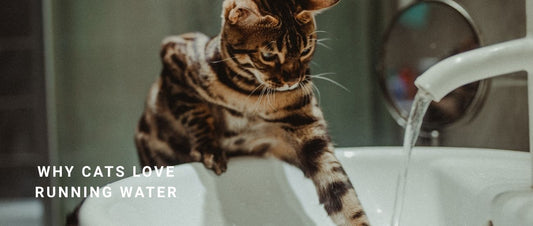
Why Cats Love Running Water: Behavioural Fascin...
If you have ever found your cat perched on the bathroom sink, pawing at a dripping tap, or curiously watching the shower drain, you are not alone. Cats across Australia—and...
Why Cats Love Running Water: Behavioural Fascin...
If you have ever found your cat perched on the bathroom sink, pawing at a dripping tap, or curiously watching the shower drain, you are not alone. Cats across Australia—and indeed, the world—seem to have a natural fascination with running water. While many pet owners dismiss this as quirky feline behaviour, the truth runs deeper. There are biological, evolutionary, and behavioural reasons behind this fascination.

DIY Pet Enrichment: Behavioural Needs and Train...
When most people think of looking after their pets, the focus is often on food, water, exercise, and vet care. However, one of the most overlooked aspects of pet ownership...
DIY Pet Enrichment: Behavioural Needs and Train...
When most people think of looking after their pets, the focus is often on food, water, exercise, and vet care. However, one of the most overlooked aspects of pet ownership is enrichment—the practice of creating stimulating environments and activities that satisfy a pet’s instinctual and cognitive needs.

Food Begging in Pets: Behavioural Causes and Tr...
Anyone who has shared a meal with a pet nearby knows the look—wide eyes, pawing at your leg, or an insistent meow from the kitchen bench. Food begging is one...
Food Begging in Pets: Behavioural Causes and Tr...
Anyone who has shared a meal with a pet nearby knows the look—wide eyes, pawing at your leg, or an insistent meow from the kitchen bench. Food begging is one of the most common behaviours pet owners face, yet it’s also one of the most frustrating. What starts as “cute” can quickly spiral into an unhealthy and disruptive habit.
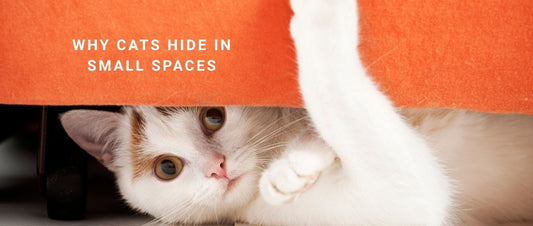
Why Cats Hide in Small Spaces: Behavioural Reas...
Imagine coming home after a long day, calling your cat’s name, only to discover that they are nowhere in sight. You search the lounge, the kitchen, and finally notice a...
Why Cats Hide in Small Spaces: Behavioural Reas...
Imagine coming home after a long day, calling your cat’s name, only to discover that they are nowhere in sight. You search the lounge, the kitchen, and finally notice a pair of eyes peeking out from the narrow gap beneath the bed—or perhaps from deep inside a laundry basket. This behaviour is familiar to many Australian cat owners. Cats seem to have a remarkable ability to squeeze into the smallest of spaces, and while it can appear amusing or endearing, it often leaves owners wondering: why do cats do this?

Play Fighting vs Aggression: Behaviour Explaine...
Anyone who has watched kittens tumbling together or puppies wrestling on the lawn knows how entertaining and endearing play fighting can be. Yet, for many Australian pet owners, the line...
Play Fighting vs Aggression: Behaviour Explaine...
Anyone who has watched kittens tumbling together or puppies wrestling on the lawn knows how entertaining and endearing play fighting can be. Yet, for many Australian pet owners, the line between harmless play and dangerous aggression is often blurred. One moment your cat might be batting gently at your hand, and the next, the claws are out. Or two dogs in the park might begin with playful chasing, only for the energy to suddenly escalate into snarling.

Storm & Firework Anxiety: Behavioural Fears and...
For many Australian households, pets are not just companions but family members. Yet, events that humans often celebrate—like New Year’s Eve fireworks—or natural occurrences such as summer thunderstorms, can be...
Storm & Firework Anxiety: Behavioural Fears and...
For many Australian households, pets are not just companions but family members. Yet, events that humans often celebrate—like New Year’s Eve fireworks—or natural occurrences such as summer thunderstorms, can be terrifying for cats and dogs. The sudden booms, crackles, flashes of light, and changes in air pressure trigger instinctive fears that can leave pets trembling, hiding, or even attempting to escape.

Socialising Shy Pets: Behavioural Challenges an...
Every pet has a unique personality, just like people. Some dogs and cats are naturally outgoing, eager to greet strangers, and curious about every sound and smell. Others, however, may...
Socialising Shy Pets: Behavioural Challenges an...
Every pet has a unique personality, just like people. Some dogs and cats are naturally outgoing, eager to greet strangers, and curious about every sound and smell. Others, however, may shrink away from new people, hide under the couch during gatherings, or cling nervously to their owners. These are what we often call shy pets.
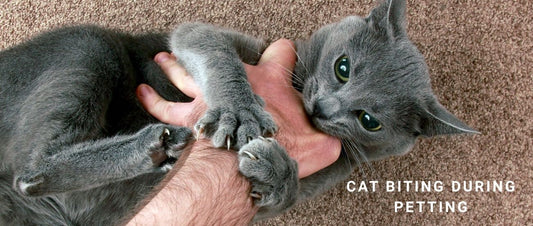
Cat Biting During Petting: Behavioural Triggers...
Every cat owner has likely experienced it at some point: you’re enjoying a calm bonding session with your cat, gently patting her, when suddenly she turns and delivers a sharp...
Cat Biting During Petting: Behavioural Triggers...
Every cat owner has likely experienced it at some point: you’re enjoying a calm bonding session with your cat, gently patting her, when suddenly she turns and delivers a sharp nip to your hand. What feels confusing to humans is actually a very common feline behaviour known as “petting-induced aggression” or more accurately, overstimulation biting.

Why Does My Cat Ignore Me? Feline Independence ...
Anyone who shares their home with a cat has likely experienced the puzzling moment when their feline companion seems to completely ignore them. You call their name, pat the couch...
Why Does My Cat Ignore Me? Feline Independence ...
Anyone who shares their home with a cat has likely experienced the puzzling moment when their feline companion seems to completely ignore them. You call their name, pat the couch beside you, or rattle the food bowl—and yet, your cat glances away or walks right past. For many pet owners, this can feel frustrating or even a little hurtful. After all, dogs often rush to greet their humans, so why do cats appear so indifferent?
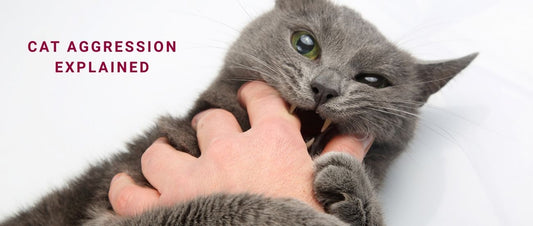
Cat Aggression Explained: Behavioural Causes an...
Aggression in cats is one of the most misunderstood aspects of feline behaviour. Many Australian pet owners are surprised when their otherwise affectionate companion suddenly hisses, swipes, or bites. These...
Cat Aggression Explained: Behavioural Causes an...
Aggression in cats is one of the most misunderstood aspects of feline behaviour. Many Australian pet owners are surprised when their otherwise affectionate companion suddenly hisses, swipes, or bites. These moments can be alarming, sometimes leading to scratches, strained bonds, or even the difficult decision of rehoming a pet. But beneath these outbursts lies a complex mix of biology, environment, and learned behaviour that deserves careful understanding.

Introducing New Pets: Behavioural Insights and ...
Bringing a new pet into your household is a moment filled with excitement and anticipation. Whether it’s adopting a rescue cat, introducing a puppy into a dog-friendly home, or balancing...
Introducing New Pets: Behavioural Insights and ...
Bringing a new pet into your household is a moment filled with excitement and anticipation. Whether it’s adopting a rescue cat, introducing a puppy into a dog-friendly home, or balancing the dynamics between cats and dogs, the process requires far more than enthusiasm alone. Successful introductions hinge on an understanding of animal behaviour, a commitment to training, and the right environmental setup.

Signs of Stress in Pets: Behavioural Clues and ...
Every pet owner wants their furry companion to live a happy, relaxed life. Yet, stress is not only a human problem—it deeply affects pets as well. Dogs and cats may...
Signs of Stress in Pets: Behavioural Clues and ...
Every pet owner wants their furry companion to live a happy, relaxed life. Yet, stress is not only a human problem—it deeply affects pets as well. Dogs and cats may not express their worries in words, but their behaviour tells a powerful story if we know how to interpret it.

Attention-Seeking Pets: Behavioural Signs and T...
Every pet owner loves a cuddle, a wagging tail, or a soft purr when they walk through the door. Pets thrive on companionship, and in many ways, their affection is...
Attention-Seeking Pets: Behavioural Signs and T...
Every pet owner loves a cuddle, a wagging tail, or a soft purr when they walk through the door. Pets thrive on companionship, and in many ways, their affection is one of the reasons we cherish them. Yet, there’s a line between normal bonding and behaviour that signals excessive attention-seeking.

Zoomies Explained: High-Energy Behaviour and Tr...
If you have ever watched your cat suddenly dart through the living room like a furry missile, or your dog sprint in joyful circles around the backyard, you have witnessed...
Zoomies Explained: High-Energy Behaviour and Tr...
If you have ever watched your cat suddenly dart through the living room like a furry missile, or your dog sprint in joyful circles around the backyard, you have witnessed what many pet owners call the “zoomies.” Scientifically referred to as Frenetic Random Activity Periods (FRAPs), these high-energy bursts often appear out of nowhere, leaving owners amused, puzzled, or even concerned.
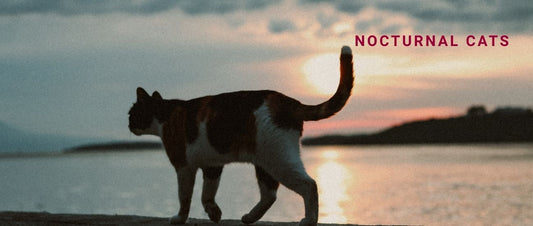
Nocturnal Cats: Behavioural Reasons and Trainin...
Cats have long fascinated humans with their unique relationship to sleep. While dogs may adjust their routines to mirror their owners, cats maintain an independent rhythm that often feels at...
Nocturnal Cats: Behavioural Reasons and Trainin...
Cats have long fascinated humans with their unique relationship to sleep. While dogs may adjust their routines to mirror their owners, cats maintain an independent rhythm that often feels at odds with household schedules. To understand why your cat is active at night, it is important to explore how their sleep cycles work.
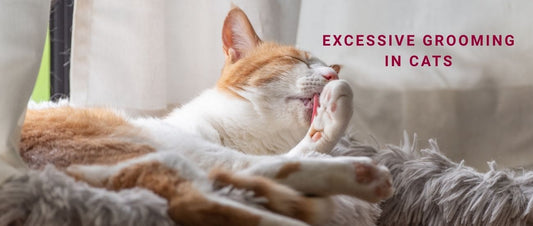
Excessive Grooming in Cats: Behavioural Signs a...
Cats are known for their meticulous grooming habits. A healthy cat can spend anywhere between 30% and 50% of its waking hours grooming itself, keeping its fur clean, removing loose...
Excessive Grooming in Cats: Behavioural Signs a...
Cats are known for their meticulous grooming habits. A healthy cat can spend anywhere between 30% and 50% of its waking hours grooming itself, keeping its fur clean, removing loose hairs, and maintaining body temperature. Grooming also has a social and psychological role, offering comfort and bonding when cats lick one another or even their human companions.
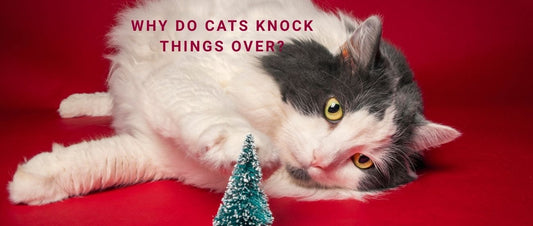
Why Do Cats Knock Things Over? Behaviour Explai...
If you share your home with a cat, chances are you’ve witnessed this scene before: a glass of water left on the bedside table mysteriously tumbles to the floor, a...
Why Do Cats Knock Things Over? Behaviour Explai...
If you share your home with a cat, chances are you’ve witnessed this scene before: a glass of water left on the bedside table mysteriously tumbles to the floor, a pen on your desk is swatted across the room, or perhaps a fragile ornament has met an unfortunate end. Many cat owners laugh at these antics, while others find themselves frustrated or even worried about the behaviour. But behind the humour lies an important question: why do cats knock things over?
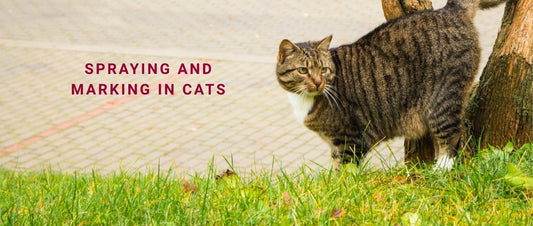
Spraying and Marking in Cats: Behavioural Cause...
For many Australian cat owners, few behaviours are as puzzling—or as frustrating—as spraying and marking. Finding a pungent streak of urine against the wall, furniture, or even a shopping bag...
Spraying and Marking in Cats: Behavioural Cause...
For many Australian cat owners, few behaviours are as puzzling—or as frustrating—as spraying and marking. Finding a pungent streak of urine against the wall, furniture, or even a shopping bag can test the patience of even the most loving pet parent. Yet, while it may feel like defiance, spraying is rarely an act of “bad behaviour.” Instead, it’s a form of communication deeply rooted in feline instincts.

Rescue Pet Anxiety: Behavioural Fears and Train...
Bringing a rescue pet into your home is one of the most rewarding acts of compassion. In Australia, thousands of cats and dogs are rehomed every year through the RSPCA,...
Rescue Pet Anxiety: Behavioural Fears and Train...
Bringing a rescue pet into your home is one of the most rewarding acts of compassion. In Australia, thousands of cats and dogs are rehomed every year through the RSPCA, local shelters, and foster programs. Many of these animals have faced difficult pasts—neglect, abandonment, or even abuse—which often leaves them with lingering fears and anxiety.
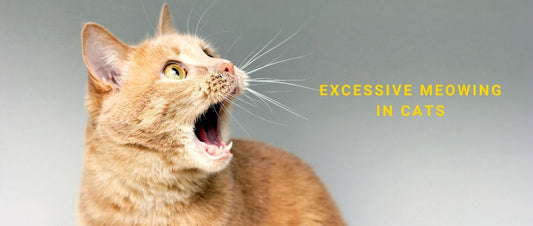
Excessive Meowing in Cats: Behavioural Causes a...
Meowing is one of the most distinctive sounds in the pet world. Unlike dogs, cats do not typically vocalise to one another in long conversations—their meows are primarily reserved for...
Excessive Meowing in Cats: Behavioural Causes a...
Meowing is one of the most distinctive sounds in the pet world. Unlike dogs, cats do not typically vocalise to one another in long conversations—their meows are primarily reserved for humans. Over thousands of years of domestication, cats have refined their vocal tones to catch our attention, whether it be for food, play, or comfort.
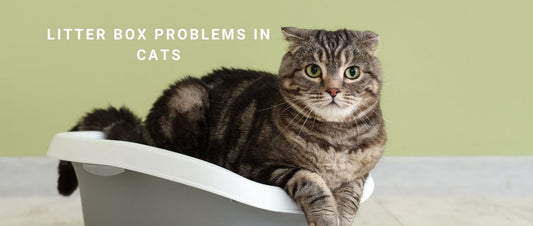
Litter Box Problems in Cats: Behavioural Causes...
For many Australian cat owners, litter box problems are among the most frustrating challenges of sharing a home with a feline companion. When a cat suddenly stops using its litter...
Litter Box Problems in Cats: Behavioural Causes...
For many Australian cat owners, litter box problems are among the most frustrating challenges of sharing a home with a feline companion. When a cat suddenly stops using its litter box, the result is often stress, tension, and hygiene concerns, sometimes even threatening the bond between pet and owner.
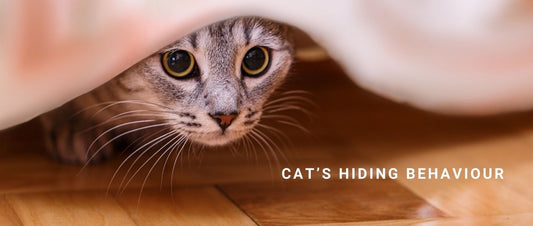
Why Is My Cat Suddenly Hiding? Behaviour Trigge...
Cats have always been creatures of mystery. From curling up in sunlit corners to squeezing into cardboard boxes, their love for hidden places is well-known. But when a cat that...
Why Is My Cat Suddenly Hiding? Behaviour Trigge...
Cats have always been creatures of mystery. From curling up in sunlit corners to squeezing into cardboard boxes, their love for hidden places is well-known. But when a cat that usually lounges openly on the sofa suddenly disappears under the bed for hours or even days, owners often feel concerned and confused. Hiding can be both a natural behaviour and a warning sign. On one hand, it reflects your cat’s evolutionary instincts to seek shelter and stay safe from threats. On the other, sudden or unusual hiding can signal deeper issues — anything from household stress to serious medical conditions.
